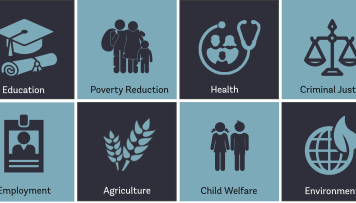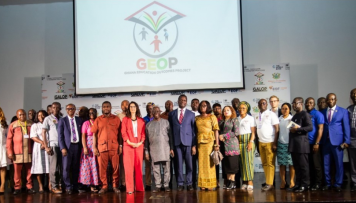
Photo: Dominic Chavez / World Bank
Most of development assistance today is delivered through input finance with no guarantee of successful achievement of results. Now imagine that a government could commission for increased employability among a targeted population, narrowed learning gap between boys and girls, more affordable housing in urban settings, or increased connectivity to economic opportunities. Imagine that the service providers have the flexibility to deliver on the contract and that the government is paying based on the program’s success. This is outcome-based financing.
Over the past few decades, we’ve seen a shift in the focus of development finance from input activities and short-term outputs to longer term outcomes. This trend follows an increase in demand for greater accountability, transparency and the need to maximize financing sources to address development challenges. It is in this context that the World Bank introduced a new results-based lending instrument in 2012: Program for Results.
When we shift the focus to results, an important change occurs at a fundamental level. By emphasizing outcomes, payment metrics become more closely aligned with the ultimate development objective of a project. This alignment is key to providing greater benefits to both project beneficiaries as well as service providers, who are given the flexibility to innovate, learn, and adapt their interventions to achieve the ultimate results.
Outcome-based financing isn’t a silver bullet, because these projects require upfront funding to deliver the intervention before the outcome funder (e.g., government, donor, IFI) pays. To help bridge the gap, impact bonds, a type of outcome-based financing, emerged as a solution. In an impact bond, investors—traditionally impact investors—fund the service provider’s operation and are repaid upon the achievement of pre-agreed results, typically at a premium. For example, the world’s first impact bond reduced recidivism among offenders in Peterborough, UK by nine percent, exceeding the target of 7.5 percent, and repaid private investors in full, with a return of 3 percent per annum.
Despite nearly 200 impact bonds in 33 countries, this market is growing slower than its promise. If we are to encourage private capital and service providers to alter their business models and invest in outcome-based initiatives, more and larger transactions are needed.
Why an Outcomes Fund at the World Bank?
To address some of the barriers that impede funding, information and knowledge flows, skills and capacity building around outcome-based financing, the World Bank, with an initial contribution from the Foreign, Commonwealth and Development Office of the United Kingdom, established the Outcomes Fund Multi-Donor Trust Fund, housed at the Global Partnership for Results-Based Approach (GPRBA).
Over the past 17 years, GPRBA has been testing RBF approaches that link funding to actual results achieved. Through a diverse portfolio of projects, GPRBA has built a compelling case for the ability of RBF to buttress public resources by mobilizing private finance and results-based grants and to deliver basic services to low-income communities.
With the Outcomes Fund, GPRBA is building on what it already knows: strategically designed, results-based blended finance approaches can unlock resources for development projects while ensuring the poorest and most vulnerable benefit from these investments through careful targeting.
The Outcomes Fund may be new, but the World Bank has experience working with impact bonds before. After the first impact bond of the World Bank—which targeted youth and female unemployment outcomes in the West Bank and Gaza—GPRBA launched an impact bond to increase access to quality preschool education in the urban areas of Uzbekistan and is harnessing outcome-based financing to help out-of-school children in Ghana reintegrate into the formal education system and improve their learning outcomes. In all three of these impact bonds, the investors are funding the delivery of the intervention by the service provider before they are paid back based on performance, i.e. the degree to which the results are achieved.
With the establishment of the Outcomes Fund, GPRBA will continue to innovate in the RBF space. The Fund will help build the capacity of local markets to use outcome-based financing and other results-based blended finance solutions to drive improved social, infrastructure, and environmental outcomes for poor and vulnerable populations. Its sector focus will include climate, resilience and environment, urban upgrading and provision of basic services, water, sanitation and hygiene, education, employment, and poverty graduation.
This effort is an exciting new endeavor for GPRBA. But looking at the bigger picture, it serves an important role as part of the World Bank’s agenda on mobilizing finance for development to systematically leverage all sources of finance, expertise, and solutions to support developing countries’ sustainable growth.
The experience gained and lessons learned through the Outcomes Fund will enable the World Bank to advise its client countries and become a thought leader in applying outcome-based financing to achieve the sustainable development goals.
(This post originally appeared on the World Bank's Sustainable Cities blog)










